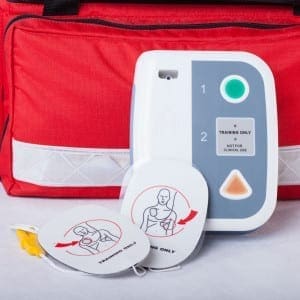 I know. My eyes are rolling back and getting heavy too. The thought of attending a monthly peer group or business networking session is making me fall fast asleep as I write. It’s enough to make staying home watching television in solitude a preferable alternative to anything extra that might help move business forward.
I know. My eyes are rolling back and getting heavy too. The thought of attending a monthly peer group or business networking session is making me fall fast asleep as I write. It’s enough to make staying home watching television in solitude a preferable alternative to anything extra that might help move business forward.
In many cities and countries there exists a plethora of peer advisor groups: C-suite roundtables, supper clubs, business networking groups, peer advisory boards, etc., etc. The one thing most all have in common is that they’re running the traditional software version ‘1.0’ (1980/90s format and approach). Read the Financial Times’ article Group therapy for business founders and you get an idea what it’s all about.
Traditional peer advisory groups are typically characterised by loosely structured sessions, lack of member accountability, more personal therapy vs development, typical ‘classroom’ information push learning, as well as unknown ROI/business impact. The groups are also used as a circuit for professional speakers who lecture on general topics like, ‘Intro to NLP’ (Neuro Linguistic Programming), ‘Effective Time Management’, ‘Employee Motivation Techniques’ and ‘4 Leadership Personality Styles’. As one former peer group member said when reflecting on the value, ‘The (group) has not added a penny to the bottom line’ but now I don’t work on weekends and was able to take the first family holiday in years’.
While the traditional format may be greatly beneficial for some – what if you really want to develop your skills and grow your business? Where can you go apart from hiring an expensive business or leadership development consultant with limited scope?
Step this way to experience the next generation peer advisor group format – and upgrade the old system version from ‘1.0’ to ‘10.0’. That gap is precisely how much the peer advisory format has changed in past five to ten years. Next generation peer advisory groups are completely different from their traditional predecessor in approach, intention, design and delivery.
What’s new and different exactly?
One significant difference is that peer group member businesses operate in the same industry and/or same sector. This takes learning, developing, advising, and growth to an entirely different level of engagement. Imagine sharing the same industry or business problems with owners who are like-minded aspirational individuals, but have no desire to compete with you? This includes marketing strategy, financial information, best sector practices and trade ‘secrets’. Traditional groups have a mix of owners and career MDs who come from a wide range of industry/sectors. And because they share no real business similarity, apart from typical every day c-level business problems, the level and depth they can ultimately deliver is superficial. As you well know, running your own hotel business is not the same as running an IT, chemicals, or parts manufacturing business.
Other major differences are: Format Types and Content. Next generation peer advisor groups are not delivered in ‘one size fits all’ formats like traditional peer groups. Because of next gen’s demanding nature and appetite for dynamic, practical activity different formats are tailored according to members’ current/future business and leadership lifecycle stage. Early stage entrepreneur groups have very different needs than established Owner/Family business or corporate career MDs. Content is delivered ‘70:20:10’ learning style otherwise know as ‘practice leadership/management’. This means that activities and learned skill have purposeful application directly back at work with real time challenges.
What’s involved in getting involved?
Before you are able to join a group you must pass the selection criteria (guaranteeing high quality member levels) and have a personal 1:1 meeting to plan your year strategically. When you finally join a selected group you better be prepared to work. This may include covering a topic of interest identified by the group, discussing a problem with a group Chair (who is a well know leader in your industry), practicing a functional leadership skill like ‘coaching’ lead by group Co-Chair (an expert in leadership development), or taking ‘field trip’ to attend an onsite visit to an owner/MD run business.
For better or worse there’s ‘homework’. You must contract with yourself and the group to implement in your business what you have learned. And you will be held accountable. This is one of the several ways to calculate the ROI of peer group investment (membership fee) in addition to the old fashioned way of looking at bottom-line business results (EBITA).
The benefits
Research indicates the benefits of next generation peer advisory groups for same industry/sector business owners. The format consistently outperforms:
- Traditional C-Suite business peer group models
- Top performing industry/sector and competitor companies
- Industry/Sector events, conferences and workshops.
The traditional peer group advisory model was an incredibly ‘cutting edge’ format for its place in time – 20th century business/1980s to 1990s. Now the present day early 21st century business environment is becoming more complex and changing rapidly. Naturally peer advisory formats will have to adjust to change as well. This is especially true for the hospitality industry (young, modern, dynamic and people driven). Chris Sheppardson, Founder of EP Hospitality, recently referred to these changes in his blog about the changing nature of networking, how executives think, mindset, transparency, openness and exchange of ideas.
I know that all this talk about new formats and next generation might sound like a terrible innovation invading the traditional nature of business culture. But I only have to refer to other innovations that were proclaimed doomed to fail to dispel that myth i.e. Internet dating, crowd funding, blogging and social media. So take a minute to think about whether your industry/sector is treating your role and business like ‘old school business networking’ or a ‘next generation industry community’. If you’re looking to modernise just find the right software, download and reboot.
About the author
 John Grisby’s heritage in human performance and development is from 20 years experience of a multidiscipline background in competitive sport, creative media, management consultancy in performance and international business development (sales/ marketing). He has extensive experience working with Entrepreneurs, Founder/Owners, career- CEO/MDs, Senior Management Teams and ‘High Potentials’ from Large SMEs, Mid- Market and Corporate companies across markets in Europe, South America, Africa, the Middle East and the US. John was responsible for consulting, design and delivery of in-company leadership, performance, development and growth programmes. He has also supervised and led certified and accredited EMCC Senior Practitioner programmes to train and develop individuals to become professional Executive Coaches in the marketplace (ICF/ILM). He is Managing Director of EP Leaders Circle – the first same sector (hospitality) peer advisory group business in UK/Europe.
John Grisby’s heritage in human performance and development is from 20 years experience of a multidiscipline background in competitive sport, creative media, management consultancy in performance and international business development (sales/ marketing). He has extensive experience working with Entrepreneurs, Founder/Owners, career- CEO/MDs, Senior Management Teams and ‘High Potentials’ from Large SMEs, Mid- Market and Corporate companies across markets in Europe, South America, Africa, the Middle East and the US. John was responsible for consulting, design and delivery of in-company leadership, performance, development and growth programmes. He has also supervised and led certified and accredited EMCC Senior Practitioner programmes to train and develop individuals to become professional Executive Coaches in the marketplace (ICF/ILM). He is Managing Director of EP Leaders Circle – the first same sector (hospitality) peer advisory group business in UK/Europe.



















